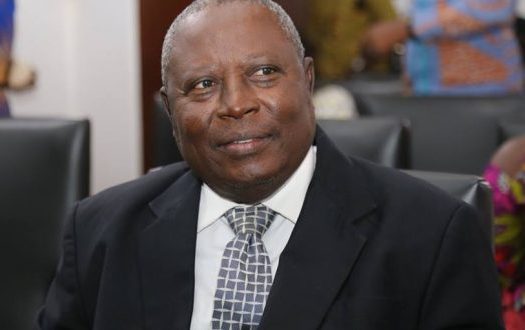I woke up to the news that the SC has decided the Ayine v Amidu case by a 5-2 majority against the plaintiff.
It is good that this matter, albeit delayed, has ended. In a democracy, the Court has the last word and it has spoken. All other views are just that.
I would have voted with the minority on grounds that Parliament has no authority to create a public service position that subverts the retirement age scheme stipulated by the Constitution.
The Constitution creates two kinds of public officers, one who can be dismissed only for cause and the other at will. See chart below.
At will public officers are normally elected or serve at the pleasure of elected officials. They can be dismissed at will either by electors or their appointors. Because their tenure is hazardous at best, the Constitution specifies no mandatory age.
For cause public officers are normally career officers and can only be dismissed for a good cause. Because their tenure is guaranteed while they act properly, the Constitution sets a mandatory retirement age. Here, the Constitution itself provides that a few in this category must retire at 70, others at 65 and all others at 60.
This means unless otherwise included in the 70 or 65 bucket, a for cause public officer must retire at 60.
The Special Prosecutor is a for cause public service position. It is neither elected nor does the occupier serve at the pleasure of the appointors. Plainly, it is just a specialized prosecution position.
In my opinion, just because the Constitution itself allows some for cause public officers to retire at 65 and 70, does not mean Parliament too can create positions that set the retirement age beyond 60 or otherwise effectively upset the constitutional retirement scheme.
Otherwise, we are in a regime where all parliament needs to do is to create a Special Professor or Special Nurse position and stipulate that they serve for a 10 year term, which then allows them to be appointed after mandatory retirement for 10 more years.
It is logically unpleasant for a DPP to be retired mandatorily at 60 only to be appointed to another public service prosecutorial position for a fixed term. Whether one is in charge of prosecuting corruption or prosecuting armed robbers should not determine one’s retirement age. At least, that facially absurd regime is not in the Constitution.
Where the Constitution has provided an explicit scheme to govern the retirement of public servants, Parliament cannot create public service positions that in effect have no retirement age. Nor should, in my opinion, the Supreme Court use a “purposive” interpretation to sanction such a parliamentary adventure.
Likewise, while the Constitution sets a minimum age of 40 for the President and 21 for an MP, that does not mean Parliament too can start setting its own minimum age limits on public service positions.
To me, all these point to the importance of amending the mandatory retirement law to increase it to 70 while allowing people to voluntarily retire at 60.
A final noteworthy point is that the Supreme Court took more than 2 years to determine this case. This is not good enough. A question about the qualifications of a person to hold a certain office must be resolved immediately. Ideally, it must be resolved before the person ascends to that office.
A delay in answering such a question is not just unjust, it also puts the Court in a precarious position where saying the appointee is disqualified raises questions about the Court’s wisdom in allowing an unqualified person to hold the position for 2+ years in violation of the Constitution. Unconsciously, such delays may then bias the Court toward a finding of constitutionality to avoid the dissonance of declaring unconstitutionality after allowing the unconstitutionality to persist for 2+ years.
Alas, this is not the first time that such an unacceptable delay has occurred. In fact, such delays, in time-sensitive constitutional cases, have become the norm. The Court should figure out a way to address this problem as it is causing the public to lose confidence in and respect for these delayed opinions.
Many of these constitutional cases are about legal arguments and do not involve testimony from witnesses. They can be resolved much quicker than the current practices allow.
128/1820 is a bona fide scam and sham.
Da Yie!
Latest Stories
-
Kinshasa to host first World Music and Tourism Festival, celebrating rumba
1 hour -
Today’s Front pages: Friday, June 27, 2025
2 hours -
Kamal Deen Sulemana agrees deal with Atalanta
2 hours -
COVID-19 remains a threat – GHS cautions public
2 hours -
Renewed clashes in Nkwanta South leave one dead, several injured
2 hours -
Delay not intentional, let’s maintain good faith – Ayew Afriyie appeals to GRNMA
3 hours -
Ghana makes significant improvement in the 2025 World Competitiveness Report
3 hours -
Local Government Ministry to pilot 24-Hour Economy market
3 hours -
Parliament restores July 1 as Republic Day holiday
3 hours -
Global Summit: World leaders recommit to immunisation amid global funding shortfalls
3 hours -
No further postponements after July 10 – GRNMA warns
3 hours -
US-based Ghanaian petitions Acting CJ over alleged judicial misconduct in land dispute
3 hours -
Farmer punished for stealing assorted items from students
3 hours -
Telecel Ghana expands community footprint in Kumasi with 3 new shops
3 hours -
Decomposing body of 71-year-old retired teacher found in well
3 hours

